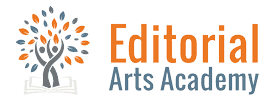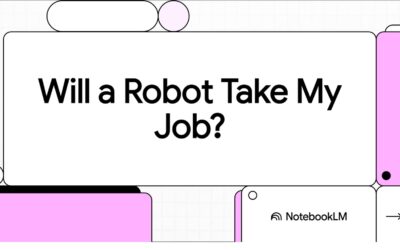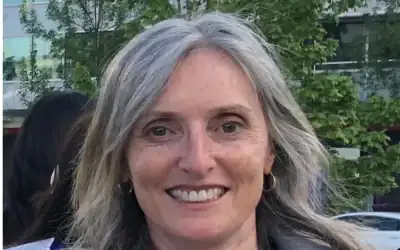Editor’s note: This is a guest post by editorial professional Rachel Lapidow.
In August 2023, I traveled to Alexandria, Virginia, to attend the Editorial Freelancers Association Conference 2023 (EFACON 2023, or just EFACON). I was looking forward to hanging out with the members of my mastermind, meeting people I’d corresponded with, and getting to visit the Fibre Space yarn store.
On the other hand, I was nervous about it. The issue is, I have anxiety. And it sucks.
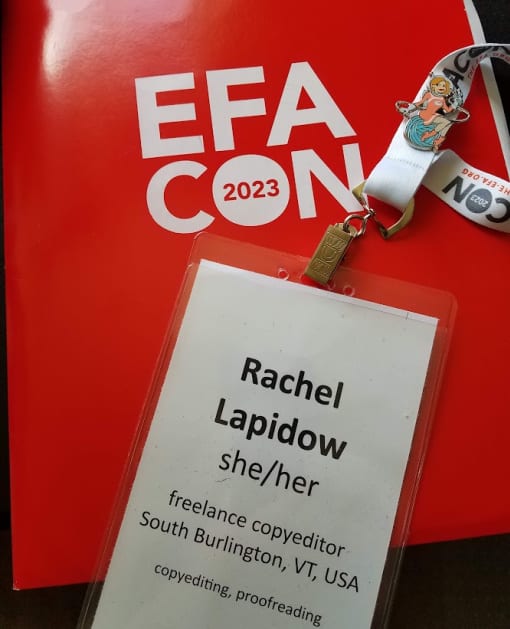
My Anxiety History
For as long as I can remember, I’ve dealt with depression, anxiety, and panic attacks. They dominated much of my life at school and work. I’ve seen a number of therapists since I was a child. Currently, I see a therapist once every three weeks; I’m privileged to have great health insurance that covers the majority of the cost of therapy.
As I got older, I realized that my jobs were making my anxiety and depression worse. When I started copyediting in 2016, for the first time in my life, I truly felt like I had found my calling and my people. Having a job I love makes it so much easier to work on my mental health and take better care of myself.
I know I’m far from the only copyeditor who has anxiety. Perhaps there’s something in an editor’s skill set that also makes a person more prone to this disorder. I think part of it is that we’re good at noticing details. That’s a highly desirable trait when hunting for rogue commas in a document, but it can be detrimental when you use that ability to constantly scan your body and your environment for any perceived threats. And while our vivid imaginations help us come up with analogies and fixes while editing, it can also paint disturbing scenarios of highly unlikely situations that we then worry about.
Tackling EFACON
To get as much out of the conference as possible, I did a number of things. I’m going to break these down into what I did before the conference, what I did during, and (you guessed it) what I did after. (I won’t be discussing prescription medications, as that isn’t the focus of this blog post. Nor will any medication or supplement erase all signs of anxiety.)
Obviously, there are things I did that readers can’t or won’t want to do, and that’s totally fine. For instance, my husband came with me, which helped a lot. Again, we’re privileged to be able to afford two plane tickets to Virginia. We were also fortunate to have short, direct flights both ways. Still, I hope you can replicate at least some of the suggestions below to make your future convention travels that much easier.
Before the Conference
I do not travel light: I travel for various contingencies. Being prepared by having a veritable drugstore in my purse is something I’ve been doing for many years. About a week or so before leaving, I bought snacks, toiletries, and over-the-counter medications and set them aside. True, EFACON wasn’t being held in the middle of the woods (thank goodness), so I knew it would be easy for me to find stores. Still, I like knowing I have supplies with me just in case.
When I was a senior in high school, I went with my French class to France for over a week. My mom, a retired nurse who also has anxiety, made me bring over-the-counter medications for ailments I’d never suffered from. (It’s pretty clear where I get my packing tendencies!) When I was on the winding bus ride up the Alps, I was glad to have Dramamine—as were my classmates who also needed a dose.
For snacks, I wanted food that was fairly bland and wouldn’t need refrigeration, such as rice cakes, individual containers of peanut butter, pumpkin seeds, and granola bars. I also tucked some tea bags in my purse, and these came in handy when I wanted peppermint tea but the restaurant didn’t have any. Mints and gum are also great to have on hand.
I perform research every day when copyediting, so it came naturally to break out my search skills for the trip. There are hundreds of restaurants in Alexandria, and I didn’t want to be overwhelmed by all the choices when I was tired and hungry. Researching restaurants ahead of time made it a lot easier to get dinner. I also scoped out exactly how to walk to Fibre Space from the hotel, and I looked at other stores I wanted to visit.
I carry my stress in my back and stomach. Knowing this, in the days before EFACON, I scheduled appointments with my chiropractor and acupuncturist. Again, I must acknowledge my privilege here because my health insurance covered most of the cost for these appointments.
Another tactic I employed was to distract myself. When a rush editing job came in that was due the day before we left, I eagerly accepted it. This gave me something to focus on that wasn’t the trip.
During the Conference
The day of our flight down, I took a longish walk in the morning to help burn off some of my nervous energy. Going for walks every day of the conference also helped a lot, and it let me see more of Alexandria. When I found myself super tired after the first couple of sessions, I skipped the next session and spent the time relaxing in my hotel room. This is something I could have felt guilty about, but instead, I framed it as needing to take this time off now so I could engage later on.
When I found myself getting anxious, I practiced square breathing and repeated a mantra to myself: Even though I’m anxious, I can handle this situation. There are tons of breathing exercises and techniques that can help break the cycle of anxiety, such as tapping and vagus nerve massage. Tapping is a practice of tapping your fingers and the edge of your hand on different spots on your head and body while verbally acknowledging your discomfort or stresses while also fully accepting yourself and how you feel. The vagus nerve is a long cranial nerve that runs through your head to your large intestines. One place it can be felt is in your ears and neck, and massaging parts of your ears and neck can help your body calm down and move away from a flight-or-fight state into a more relaxed state. To learn more about the vagus nerve, visit the Cleveland Clinic.
A helpful book that my therapist recommended is The Anxiety & Phobia Workbook: Sixth Edition by Edmund J. Bourne. If you’re in therapy, you might ask your therapist for suggestions.
People with anxiety tend to talk very negatively to themselves both during and after panic attacks. Lately I’ve been trying my best to talk kindly to myself whenever I feel anxious. One thing I’ve started to do is imagine that my anxious thoughts are balls of yarn and my anxiety is a mischievous, yarn-loving kitten. Whenever that kitten starts knocking around a ball of yarn, instead of getting mad at the situation, I try to imagine myself saying something like, “Oh, kitten!” while calmly rewinding the yarn and putting it away. Yes, it sounds silly, but reframing my anxiety this way helps me be gentler to myself, which calms me down.
Knitting is a habit I’ve found to be enormously helpful, both to stay calm and to keep focused. I actually pay better attention if I’m knitting and not frantically writing down bullet points. Because the sessions were videotaped, I knew I could rewatch any session in the future. I made sure to bring a smaller project that didn’t require a lot of attention.
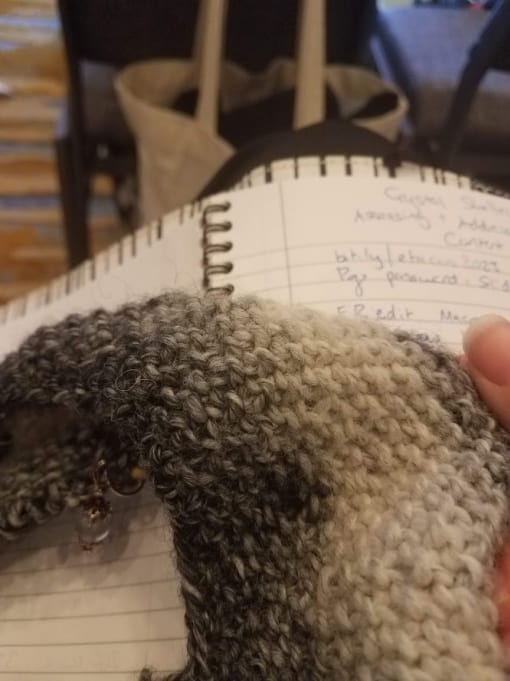
I brought business cards with me and put them in an easy-to-reach spot in my tote bag. Folks aren’t going to care what your business cards look like. If you don’t have business cards, you could just write out your email address or social media handles on some Post-its and use those instead. Or you could take people’s cards and be sure to connect with them.
Some attendees will recognize you but you won’t recognize them, and vice versa. That’s okay! Not everyone looks like their Twitter/Bluesky/Mastodon avatars, and you’ll be meeting dozens of people. If someone doesn’t recognize you or doesn’t seem thrilled to be talking to you, don’t take it personally. They could be anxious, tired, hungry, or jet-lagged, or have already met five other people with your name (especially if your name is Rachel).
What’s nice about being in a social situation with editors is that you know there are other people who are also nervous. So much of anxiety, at least for me, is the fear of what others will think of me. For the most part, everyone else is worried about the same exact thing. We’re all so caught up with our own thoughts that it’s easy to not actively experience life. In Virginia, I had the most fun when I let myself live in the moment instead of reciting a laundry list of tasks I needed to do.
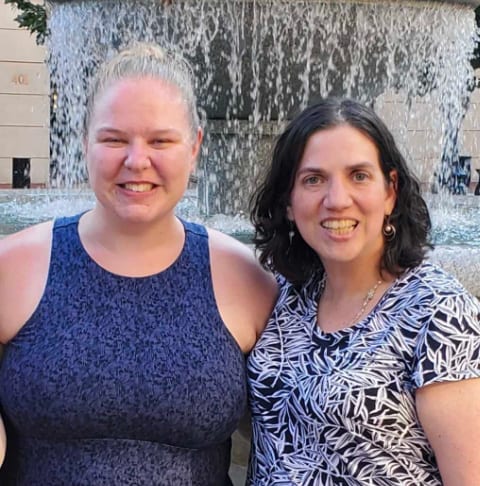
Editors Carolina VonKampen and Rachel Lapidow in Alexandria, Virginia, at EFACON 2023
After the Conference
I knew I was going to be exhausted for a day or two after I flew back home. I wisely didn’t schedule any appointments or big copyediting jobs for that first week back—and I’m really glad I didn’t because I was knackered. For over a week, I had trouble concentrating on work. With the limited energy I did have, I reached out to people I’d met, either with an email or through social media. I needed to remind myself several times that socializing tires me out, which has been especially true since the pandemic. It was okay that I was worn-out and unfocused. I reminded myself that I had achieved a lot in attending EFACON.
See You at a Future Editing Conference!
Dealing with anxiety is rough. And even if you do everything you can to mitigate your anxiety, that doesn’t mean it’s miraculously vanquished. But with time and practice, it will get easier to deal with stressful circumstances.
And remember, if you are ever at an editing conference and you need a tissue, cough drop, Tylenol, Gas-X, or Benadryl, just ask me. I bet I have some in my bag.
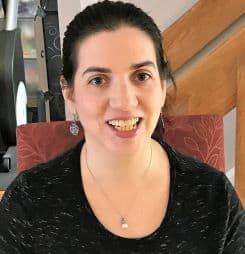
Rachel Lapidow is a freelance copyeditor, proofreader, and developmental editor who works on RPGs, board games, comics, manga, and fiction. Some of the RPG projects she’s worked on are Return to the Stars, Blue Planet: Recontact, Upwind, Honour, Mythic Space, Outward Realms, and The Last God: Tales from the Book of Ages. For board games, she’s worked on the Stardew Valley Board Game, as well as Oath and Root: The Marauder Expansion for Leder Games. She was the copyeditor for Tabletop Role-Playing Therapy: A Guide for the Clinician Game Master by Megan A. Connell and published by Norton Books. Most recently, she was the copyeditor on The Making of Assassin’s Creed: 15th Anniversary for Dark Horse which was published on October 4, 2023. Visit her website at www.RachelLapidow.com.
